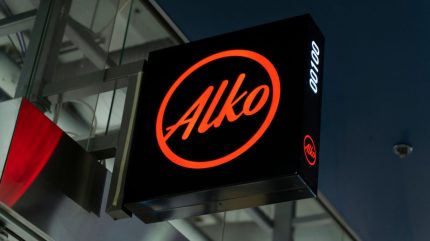
The Finnish parliament on Wednesday (5 June) voted to raise the maximum alcohol content limit for drinks sold in supermarkets from 5.5% to 8% abv.
Ministers voted 102 in favour and 80 against the government bill to raise the alcohol content allowed in beverages sold in supermarkets, according to Helsinki Times.
The change in limit will not apply to RTDs, long drinks and other mixed alcoholic drinks, which will continue to be capped at 5.5% abv.
The move follows alcohol-related news in Sweden yesterday, where the government has put forward plans to allow the sale of alcohol at small-scale breweries, distilleries and wineries.
Finland, like other Nordic countries, has an alcohol monopoly system, which means grocery stores and supermarkets can only sell drinks with an abv of 4.7% and below. Alko, the country’s state-owned monopoly system is tasked with the sales of beverages containing more than 4.7% abv.
The only exception to this regulation has been locally produced beverages, that can be sold by the farmer who made them with a maximum abv of 13%.
The change in law affects about 4% of Alko’s sales volume but Alko told Just Drinks the change in the law could reduce its sales volume by approximately 6-11%, as it could also have a knock-on impact on “traditional wine” sales.
Anu Koskinen, EVP of ssortment and procurement at Alko, said: “The estimate is uncertain – it will be seen how the consumers accept the new products and how their purchasing behavior changes, how the new products will be priced, and what the scope of the store’s product selection will be like.”
Koskinen said: “The number of sales points will increase twelve-fold and the sales hours will expand by 20%. Increasing the availability of stronger alcoholic beverages also has a human cost.
“It’s good to remember that alcohol is not an ordinary commodity but has harmful effects on society as a whole and also causes billions in costs in Finland.”
“According to international research and the World Health Organization WHO, the most effective ways to prevent alcohol harms are influencing the availability, price and marketing of alcohol. Bringing stronger alcohol for sale in grocery stores normalises alcohol consumption and increases the costs to society due to alcohol harm,” she added.
Finnish national news organisation Helsingin Sanomat reported the regulation will enter into effect on Monday (10 June) if approved by president Alexander Stubb tomorrow (7 June).
Kesko and S Group, two of Finland’s largest retailers, hope to introduce the stronger alcoholic drinks as soon as possible, Helsingin Sanomat said.
Aki Erkkilä, director of sales and procurement at Kesko, said: “The plan is to start deliveries to shops as soon as possible after the law has come into effect following its approval. In the best-case scenario, these new products will be available on the same day.”
Heidi Salmi, product category head at S Group, said the retailer had “prepared for the amendment for some time”.
“We have a modest stock of the new products, and we’ll try to get them to shops as quickly as possible after the law has come into force,” she said.
Finland’s Federation of the Brewing and Soft Drinks Industry expressed its disapproval of treating beverages with similar alcohol content differently, based on how they are produced. It said it would provide a significant competitive advantage to fermented beverages in the Finnish market.



